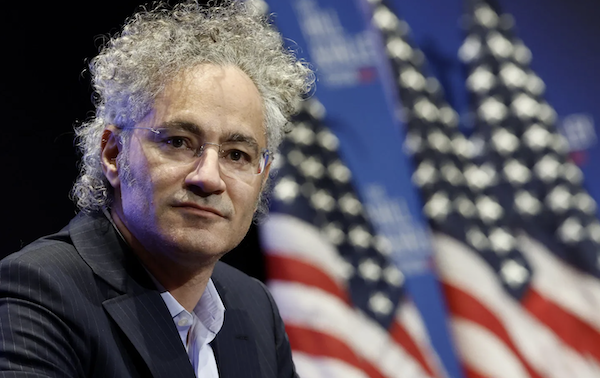Market scorecard
US markets roared higher on Friday, overcoming a string of small losses earlier in the week. Investors were heartened by a speech from Fed Chair Jerome Powell at his Jackson Hole symposium, where he hinted that the central bank may not wait for inflation to return fully to target before cutting rates. The S&P 500 had its best session since May, with gains across the board. Mega-cap tech stocks rallied, small-cap shares leapt about 4%, and banks notched fresh record highs.
In company news, Apple is reportedly in early talks to integrate Google's Gemini AI into a revamped version of its Siri voice assistant. Elsewhere, Nvidia has asked suppliers including Samsung Electronics and Amkor Technology to halt production linked to its H20 AI chip (all because Howard Lutnick is an idiot). Lastly, Meta Platforms struck a deal worth at least $10 billion with Google to use its cloud computing services.
On Friday, the JSE All-share closed up 0.96%, the S&P 500 rose 1.52%, and the Nasdaq was 1.88% higher. What a lovely end to the week.
Our 10c worth
One thing, from Paul

I had an interesting chat last week about investing, over a meal at JG Melon on the Upper East Side in New York. It's a famous bar at the corner of 3rd Avenue and East 74th Street, where almost everybody orders hamburgers, and it's cash-only.
There were three of us, and our conversation turned to how to find stocks that make really big gains, after holding them for a few decades. Not the also-ran stocks that potter along in line with the overall index. The 10-baggers, 100-baggers, and 1 000-baggers.
We agreed, as we ploughed through our sliders, fries, and beer, that the trick was to be invested through a really big change in the global economy, where an industry goes from a sideshow to a meaningful part of world GDP.
My one companion (a little older) mentioned the US railroad sector. He made a fortune owning stocks like Union Pacific from the 1990s until now, as they underpinned global trade, deepened transportation systems in the US from the east to the west coast, and from Canada to Mexico..
My other tablemate (a little younger) was talking up machine learning chips and AI. He was our earliest investor in Nvidia, when they just made graphics chips for gaming computers. He's the one whose entry price was 58 cents per share.
So, what's the trick? It's easy to see the winners in hindsight, but very hard to know what to buy right now. You have to put some lines in the water, and be patient. Avoid highly speculative niches. Wait until there is some definite momentum.
My pitch was for healthcare innovations like weight-loss drugs and medical devices, which I feel will be much more widely used in decades to come.
You'll make some mistakes along the way, but if it works out the way you hope, and you get ahead of a few really big trends, you will be richly rewarded.
Bright's banter

Palantir Technologies has lost around $73 billion in market value over a six-day losing streak, its steepest decline since April 2024. The stock has fallen 17% from its August peak, making it the weakest performer in the S&P 500 over the stretch.
Despite the setback, Palantir remains the index's top gainer for 2025, up 111% year-to-date. Short sellers are said to have pocketed $1.6 billion during the slump, but are still sitting on $4.5 billion in losses for the year, a reminder of just how sharp the rally has been.
A number of clients have shown interest in owning Palantir, because of its recent run, and it's AI-adjacent business model, but we remain a little sceptical of its very high valuation relative to current earnings, and its rather opaque operations. It does a good deal of project work for US intelligence community and military, which remains classified.
Linkfest, lap it up
Fishing and investing have a lot in common. Conditions are constantly changing and patience is vital - Tools and skill.
As the population ages, so does the workforce. Their needs change with time too - 75-plus, and thriving.
Signing off
Asian equities are trading mostly higher this morning, with benchmarks advancing across Australia, Hong Kong, India, mainland China, Japan, South Korea and Taiwan. However, Melbourne-based plumbing supplier Reece tumbled more than 16% after reporting disappointing results. Weak housing markets in Australia, New Zealand, and the US dragged on demand.
In local company news, Aspen Pharmacare fell 7% on Friday after warning that full-year earnings would be dented by impairments of R4.1 billion, alongside higher restructuring costs.
US equity futures are slightly lower pre-market. This week will be dominated by the lead-in to Nvidia's earnings report on Thursday evening.
The Rand is trading at around R17.45 to the US Dollar. Rate cuts in the US are Dollar negative.
Have a productive week, it's the last one in August.